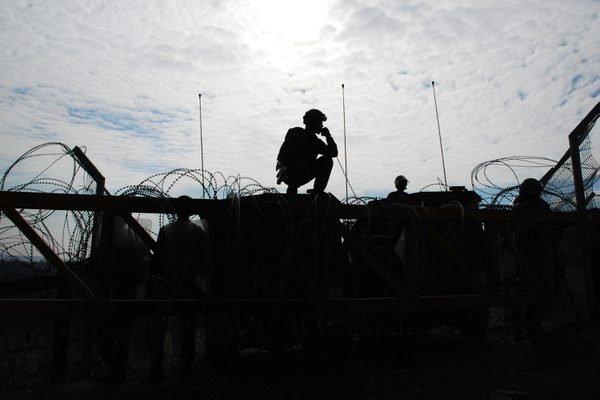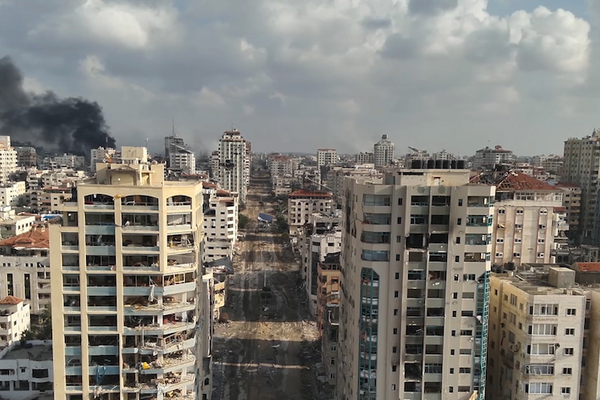When does conflict become a company’s business?
2 November 2023
When an armed conflict as divisive and destructive as the one ongoing in the Middle East dominates public debate, what is the impact on business? Does the private sector have any role to play in such situations?
Arguably, a business leader could think their organisation has little to be concerned about if it does not buy or sell products from Israel or the Occupied Territories of Palestine, or does not have employees or investments in either. But no company can ignore the realities of such moments.
Even if a company has no discernible presence in an active conflict, it may face consequences of events occurring beyond its control or ability to influence. Business leaders need to have processes in place to help them prepare for how employees may react, and how they can reassure their staff and their wider stakeholders that they want to build on the commonalities that link people, and not accentuate differences that might divide them.
Reassuring staff
Speaking about this issue last week to students in the course we at IHRB run each year on business and human rights with the Rafto Foundation at the University of Bergen, I discovered that many companies had in recent days issued reassuring messages internally to staff, calling for peace. Several participants welcomed such messages as a signal of a caring organisation, by grieving for the innocent people who had died, and hoping for peace.
In itself, calling for peace is hardly problematic, but the current situation is so charged, that even calls for a cease-fire are being criticised by some as acquiescing to terrorism. And in any case, it begs the question: Who does a company speak for when it makes public calls for peace? Its staff? The chief executive? The board? Investors? Consumers? Or society at large? Did the company consult with stakeholders or seek anyone’s consent before making such remarks?
Examples of companies responding to conflict
When Russia invaded Ukraine, many companies took a similar approach. However, once sanctions were announced and tensions rose, and calls for boycotts increased, companies were caught in a dilemma: how could they reassure staff they were doing something right when they suspended operations in Kharkiv, Ukraine, for example, or continued to operate in Moscow? How would they make the case that the business they had in Russia was essential, or that leaving would hurt Russia’s civilian population?
There were other complications that the conflict in Ukraine revealed. For example, many foreign migrant workers who came for seasonal jobs in Britain’s agricultural sector were from Ukraine, Russia, and other countries in the region, and the tendency among the contractors and employers was often to house them together in a facility where people who shared cultural characteristics would be able to live together comfortably. But those assumptions can change dramatically when conflict erupts. Tensions surfaced among Ukrainian and Russian workers living in close proximity in the dormitories.
The experience of past conflict in Northern Ireland demonstrated that companies could build teams across sectarian divides, without letting the poisonous politics outside affect their work. For example, companies that operated in Northern Ireland pledged to work against anti-Catholic discrimination by embracing the McBride Principles, to ensure fair employment practices. That included systematic efforts to increase opportunities for under-represented communities in the workforce, providing security to staff at work as well as when they traveled to and from work, and banning provocative religious emblems at workplace. Such well-intentioned moves could also pose problems, as it would mean interfering with the workers’ religious beliefs. But the company should have protocol about the kind of messages that can be posted, and the kind that might provoke emotional responses.
These steps were similar to the Sullivan Principles which date back to 1976, when companies operating in South Africa promised equal pay for equal work regardless of race, non-segregation at workplace, training programmes to upskill and promote black workers for positions with higher responsibilities, and working to eliminate laws and customs that impeded justice. These context-specific measures that companies undertook provided significant support to workers belonging to communities riven by conflict.
Related efforts from the past are also instructive for the present. In the late 1970s, when the city of Jamshedpur burned when there was a riot among Hindus and Muslims, the Tata group, whose flagship steel plant is located in Jamshedpur, took out advertisements in Indian newspapers, saying “Jamshedpur is not for burning. Because India is not for burning.”
When the Balkan conflict ended with the Dayton Peace Accords, the Organisation for Security and Cooperation in Europe, which had the human rights mandate for Bosnia-Herzegovina, developed fair labour principles to ensure that Bosniak, Croat, and Serbian workers could work together in peace.
Providing space for freedom of expression
To be sure, the current conflict in the Middle East is complex, and not every company has Palestinian and Israeli workers in the same unit, but the conflict does have linguistic, ethnic and religious dimensions, and people connected to companies in some way, in all corners of the world, see themselves as allies of one or the other side. Many human rights questions are therefore directly involved, and companies simply do not have the luxury of doing nothing.
Companies have faced such criticism while speaking out on divisive issues, such as supporting the Black Lives Matter movement or Pride marches. Banning expression of views is not the answer, but sensitive handling is crucial. For example, if the staff holds a raffle to support the victims of war, the company should ask and seek to ensure that the proceeds go to all victims, and are not sectarian.
Corporate responses clearly can’t just be public relations projects or feel-good team-building exercises. Efforts to support employees will require hard work, sensitive understanding of emotions and sensibilities, establishing norms that provide space for those wishing to express themselves peacefully, and for those who want a quiet spot to grieve, and listening constantly. It calls for continuing engagement with stakeholders, experts, and others outside the company, besides laying down clear rules about the kind of expressions that impact on the rights of others.
Corporate leaders must recognise that:
- Silence is not an option. Structured conversations, sometimes through town hall formats, and sometimes by providing the means for employees and others to speak to trained counselors and social workers, can help reduce tensions.
- Freedom of expression matters, but not if the expression of an idea is likely to be deeply offensive during a charged, politically tense time to other employees.
- Open channels of communication are needed where employees know of trusted individuals or teams they can turn to in case they feel threatened, intimidated, or stereotyped.
- Employees need to feel they are able to use a company’s own resources to contribute through donations or in kind assistance to non-government entities that provide real assistance on the ground to affected groups regardless of their ethnicity, nationality, or religion.
- Corporate actions have impacts outside the organisation too. Companies should consider communicating externally, expressing support and solidarity with all victims, endorse calls for peace collectively with other businesses or credible organisations, and offer humanitarian assistance to all victims in consultation with humanitarian organisations with expertise in dealing with such crises.
None of these steps will directly change the ongoing conflict on the ground in Gaza or Israel. But these are important actions for companies to ensure they are demonstrating care for their workforce and wider communities. Without being paternalistic or patronising, it shows that the company has laid down rules to respect individuals and their deeply-felt emotional needs without taking sides in the conflict. It is not easy. But it is necessary.




